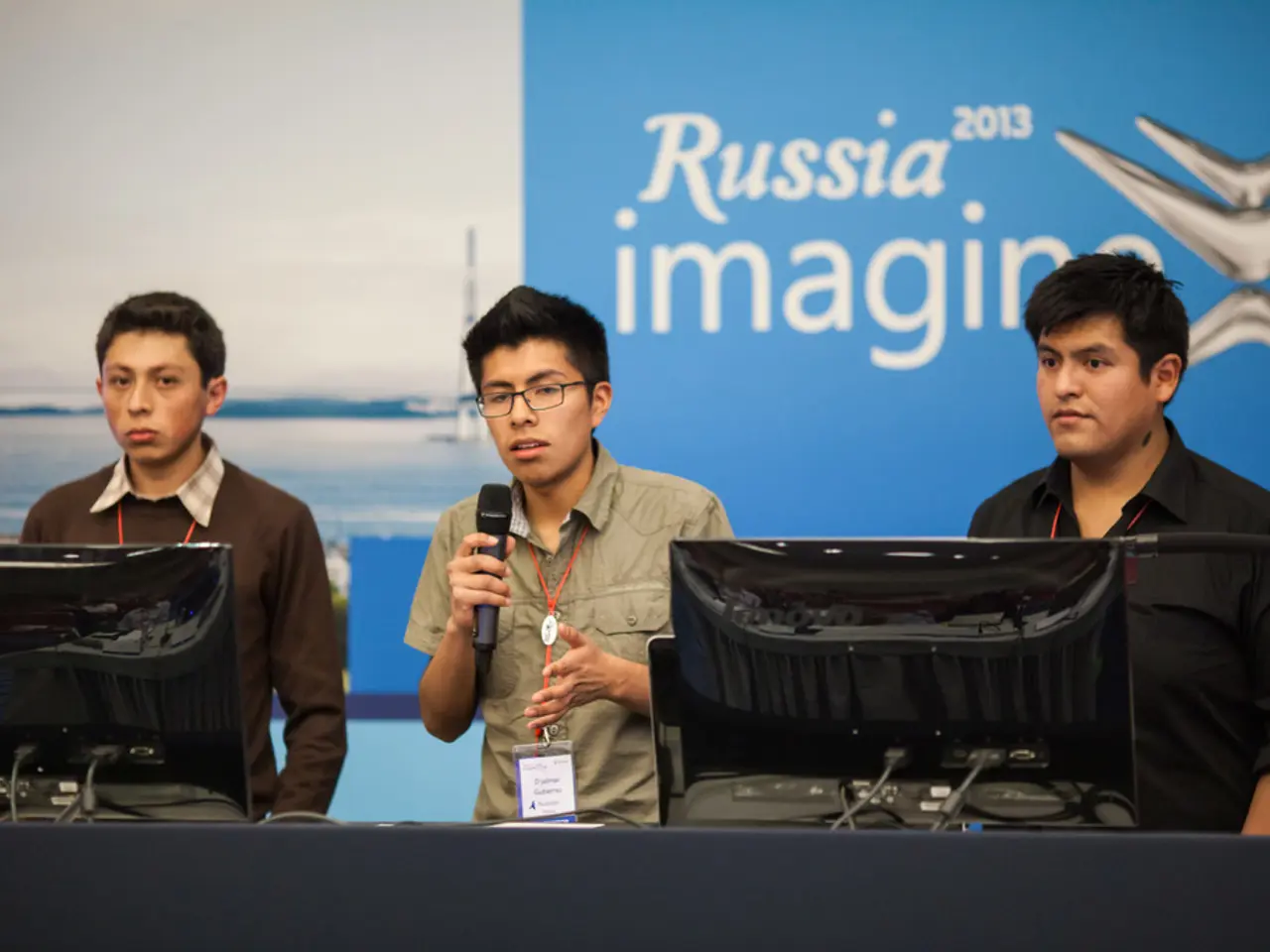Putin's ex-foreign minister's viewpoint: Peace seems unlikely as Trump summit draws near
In the ongoing Russia-Ukraine conflict, which has been active for more than three-and-a-half years, former Ukrainian Foreign Minister Dmytro Kuleba does not foresee an end to the hostilities anytime soon.
Kuleba believes that the war cannot end while Russian President Vladimir Putin is still in power. Even if Putin agrees to a ceasefire to avoid mounting pressure from the United States, it would only be a temporary respite, according to Kuleba. As of late August 2025, the war remains active with ongoing fighting and territorial changes, and prospects for a ceasefire or peace agreement are very limited.
One of the key obstacles to a peace agreement is Russia’s maximalist territorial demands. Russia insists on permanent control of Donetsk, Luhansk, and Crimea, which Ukraine categorically rejects. Another obstacle is Russia’s insistence on having veto power over Western security guarantees to Ukraine, effectively limiting Ukraine’s ability to receive military assistance or protection from future Russian aggression.
Direct talks between Putin and Ukrainian President Volodymyr Zelenskyy are not expected soon, as Russia downplays the prospect of direct dialogue and maintains an uncompromising position. Russia continues heavy bombardment and military operations, signaling no intention to pause hostilities during ongoing diplomatic talks.
International diplomatic activities have heightened the visibility of the conflict but failed to shift the core strategic positions on either side or produce a ceasefire. A pause in the fighting may only prove an opportunity for Moscow to prepare its next offensive, Kuleba warns.
Ukraine has backed the U.S. demand for a full and immediate ceasefire, during which a peace settlement can be reached. Europe should not be afraid of who comes next after Putin, Kuleba says, as nothing helps Putin more to stay in power than the fear entrenched in Western intellectual circles that someone even worse than him can move in.
Friday's planned summit in Alaska between Trump and Putin has raised hopes that a deal may be possible, but Kuleba urges caution. Putin has repeatedly dodged ceasefire proposals, suggesting that the "new territorial realities" of Russian occupation of swaths of southern and eastern Ukraine must be recognized as part of any settlement.
President Donald Trump's efforts to force a ceasefire and peace appear to be stalled. Kuleba sees a clear "evolution" in Trump's approach to the conflict, with Trump now attempting to rebalance sticks and carrots among belligerent parties.
Despite the ongoing conflict, Ukraine has received significant international aid. As of April 2025, European nations have collectively given some $182 billion in aid to Ukraine, with the U.S. contributing around $133.5 billion. However, Kuleba believes that Ukraine's Western partners have not done enough to help Kyiv succeed.
In summary, the war is active with minor territorial changes, but the strategic impasse—centered on territorial and security guarantees—makes a ceasefire or peace agreement unlikely in the near term without significant changes on the battlefield or diplomatic front. A ceasefire is possible, but ending the war as a result of the ceasefire does not seem possible at this stage, according to Kuleba.
- The ongoing Russia-Ukraine conflict, still active after over three years, is unlikely to end while Russian President Vladimir Putin remains in power, according to former Ukrainian Foreign Minister Dmytro Kuleba.
- Kuleba suggests that even if Putin agrees to a temporary ceasefire to avoid international pressure, the war would likely continue due to Russia's maximalist territorial demands and insistence on veto power over Western security guarantees to Ukraine.
- Direct talks between Putin and Ukrainian President Volodymyr Zelenskyy are unlikely, with Russia maintaining an uncompromising position and downplaying the prospect of direct dialogue, warns Kuleba.
- International diplomatic efforts have increased the visibility of the conflict but have failed to shift core strategic positions or produce a ceasefire, as Russia continues its bombardment and military operations.
- Ukraine has backed the U.S. demand for a full and immediate ceasefire, hoping to use the respite for a peace settlement, but Kuleba urges caution, as Putin has dodged similar proposals in the past.
- Kuleba calls for Western nations, specifically Europe, not to fear potential successors of Putin, arguing that their fear only serves to bolster Putin's power, while Ukraine's Western partners have not done enough to help Kyiv succeed, despite significant international aid.








